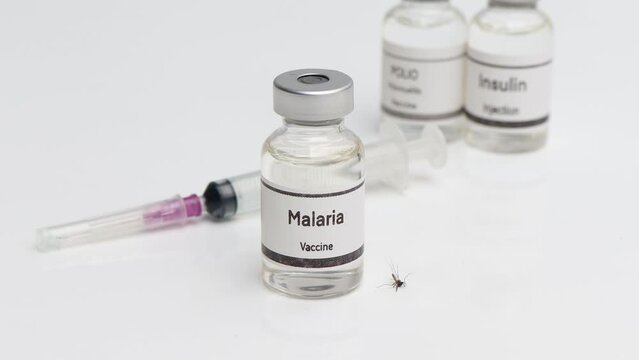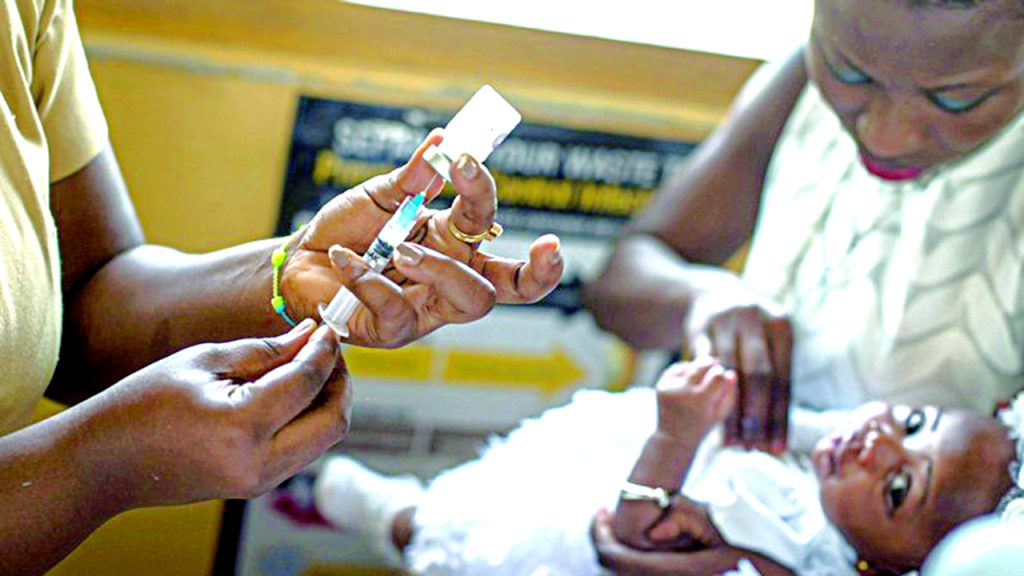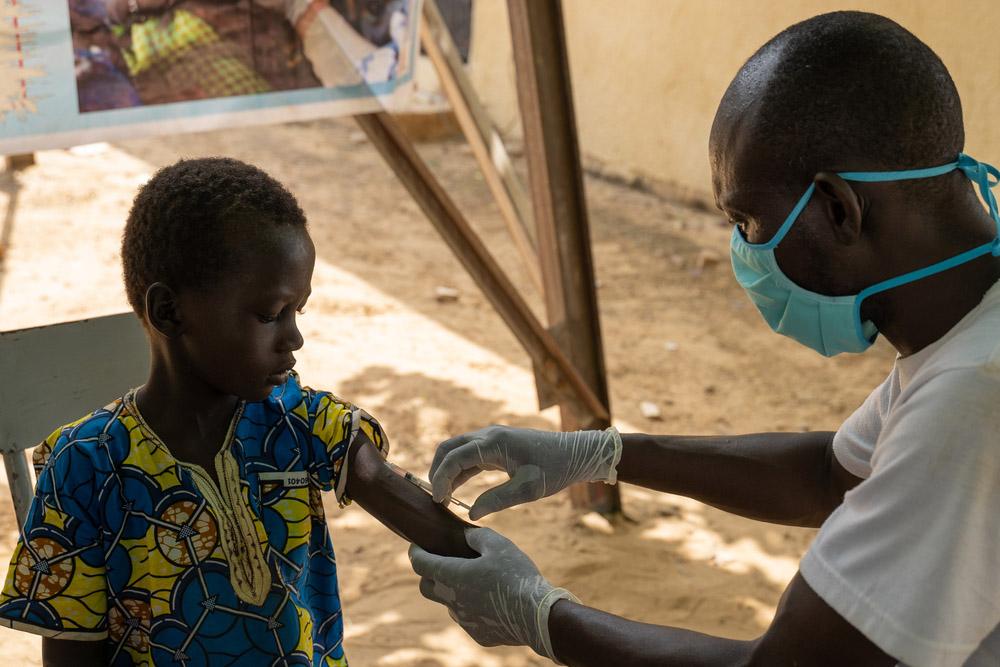The National Coordinator of the National Malaria Elimination Programme (NMEP), Dr. Godwin Ntadom, has announced the introduction of a new malaria vaccine at a media briefing in Abuja on Tuesday.

This, he stated is in the bid to fight against malaria in Nigeria. According to Dr. Ntadom, the groundbreaking vaccine will first be rolled out in the states of Bayelsa and Kebbi, before expanding to other regions. He emphasised that this vaccine is newly available, and Nigeria has decided to adopt it as part of its arsenal against the persistent malaria scourge.
“So far, only Cameroon and Kenya have commenced the use of the malaria vaccine,” Dr. Ntadom stated. “Nigeria will start the use in some states, starting with Kebbi and Bayelsa states, and then extend it to other parts of the country.”
The decision on where to initially introduce the vaccine was guided by current malaria burden data. Dr. Ntadom revealed that presently, the states of Kebbi, Sokoto, and Zamfara have the highest prevalence of malaria cases in Nigeria, while Lagos and Kwara States have the lowest rates.

This vaccine rollout is part of Nigeria’s broader strategy to significantly reduce the impact of malaria by 2025. Dr. Ntadom said there is a target to bring down malaria prevalence in the country to 10 percent by that year, with the ultimate goal of ensuring that malaria is no longer a major public health challenge.
Positive progress has been made, as the national malaria coordinator pointed out. “The malaria burden in the country has reduced from 27 percent in 2015 to 22 percent in 2021, and is more likely to reduce in 2024 considering the efforts made towards reducing the burden,” he said.
In addition to the forthcoming vaccine introduction, Nigeria has deployed various other strategies in its quest to eliminate malaria. These include the distribution of treated mosquito nets, provision of antimalarial medication, and the implementation of seasonal malaria chemoprevention treatment, especially in northern regions where malaria is more prevalent.
“While working on the former strategy we have been using, we have deployed new strategies,” Dr. Ntadom explained. “We provide anti-malaria medicine, distribute treated mosquito nets, and we have commenced seasonal malaria chemoprevention treatment, especially in the north where malaria is prevalent, and the mortality in the region has reduced as a result of the seasonal malaria intervention.”

He further clarified, “The chemoprevention treatment is carried out in areas where rainfall is seasonal. Malaria cases usually increase during the rainy season, and we target that period. In other parts of the country, we distribute nets and ensure that children, who are the vulnerable population, and pregnant women get adequate treatment. We have other interventions for pregnant women like the intermittent preventive treatment for pregnant women.”
As Nigeria intensifies its fight against malaria on multiple fronts, Dr. Ntadom also had a word of advice for citizens regarding effective antimalarial drug treatments. He urged Nigerians to purchase only those medicines that contain artemisinin-based combination therapy (ACT).
“There are some malaria medicines that are monotherapy, and some are combination therapy. When you see medicines like artemisinin, unfortunately, it is a monotherapy. It must be artemisinin-based combination therapy (ACT), where there are two medicines combined. Anytime you see that it is just one medicine, don’t buy it, as it cannot clear all the parasites,” the NMEP coordinator clarified.


